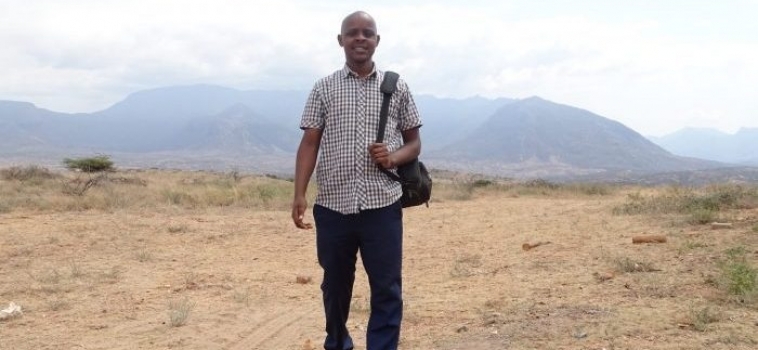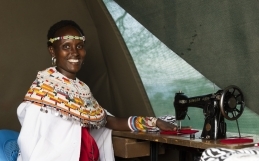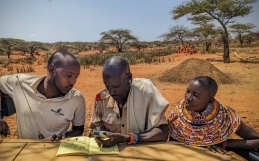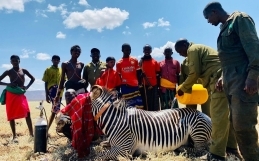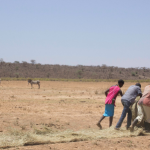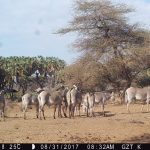In September, our Field Operations Manager, Julius Lekenit, left the heat and wilds of Samburu for the cold and classical architecture of Cambridge, to spend a year studying a Masters in Conservation Leadership. While he had a bit of a bumpy start to his trip, he has settled in and is really enjoying the experience, constantly thinking how the lessons he is learning can be applied back home. Here we share an excerpt from an email he sent to the GZT team:
Dear team,
It has been two months since l left for my studies to the UK. I had a hard start in the beginning due to my luggage being delayed, missing the first day of orientation /induction, and undertaking a first-week field trip to Norfolk (freezing cold) without my luggage! The really fun part was landing in Heathrow with a sim locked-phone (bought from Safaricom-Nairobi – supposedly unlocked when I bought it) and proceeding to Cambridge by bus and then manually searching for Jesus College (using the great skills of tracking Grevy’s zebra by foot in Barsaloi!!)
Now I have managed to settle in well. Cambridge has quite a diversity of people from different backgrounds. In my class, for example, students come from 17 countries and we are 21 in total. So almost everyone was new and so this made it easier to ask around and learn things.
The course is quite exciting and so interesting! There are a number of sessions that relate well to our work at GZT and are eye-opening to me. The first week we had a field trip to explore Norfolk Broads National Park to meet different leaders and hear their stories of conservation. Although most of the conservation here is man-made, and farming is in the middle of the ‘Park’, I learned lessons here that conservation is possible with diverse use of the land. The key thing is how you manage your land. This also broadened my definition of conservation and got me thinking out of my Kenyan context or Samburu context.
One of our sessions back in Cambridge was on hope in conservation – Optimism. This was based on the fact that conservationists keep sharing negative messages, normalizing it with the general public and thus risking not enlisting actions. Although some argue that preaching hope in conservation may be risky, there is a study that shows that the negative messages have great impacts on the human mind and makes it hard to change these perspectives later. For me, ‘hope’ is a critical ingredient of human life!
I found the lectures hard at first but I now find it exciting and have new ideas/new thinking sprouting up in my mind. I am trying to document lessons learned in each session and will share with you guys, going forward. In that way, I think it will be useful.
One take away point worth sharing- We need to think outside the box of conservation. Conservation is not just about species, ecosystem or habitat conservation; it is more than that. If you want to win over business, political and social players to your cause, you need to understand them and work with them. Blame games have to stop and engagement to start, and never get tired. Find a reason to wake up each day and continue the cause!
Thanks,
Julius
